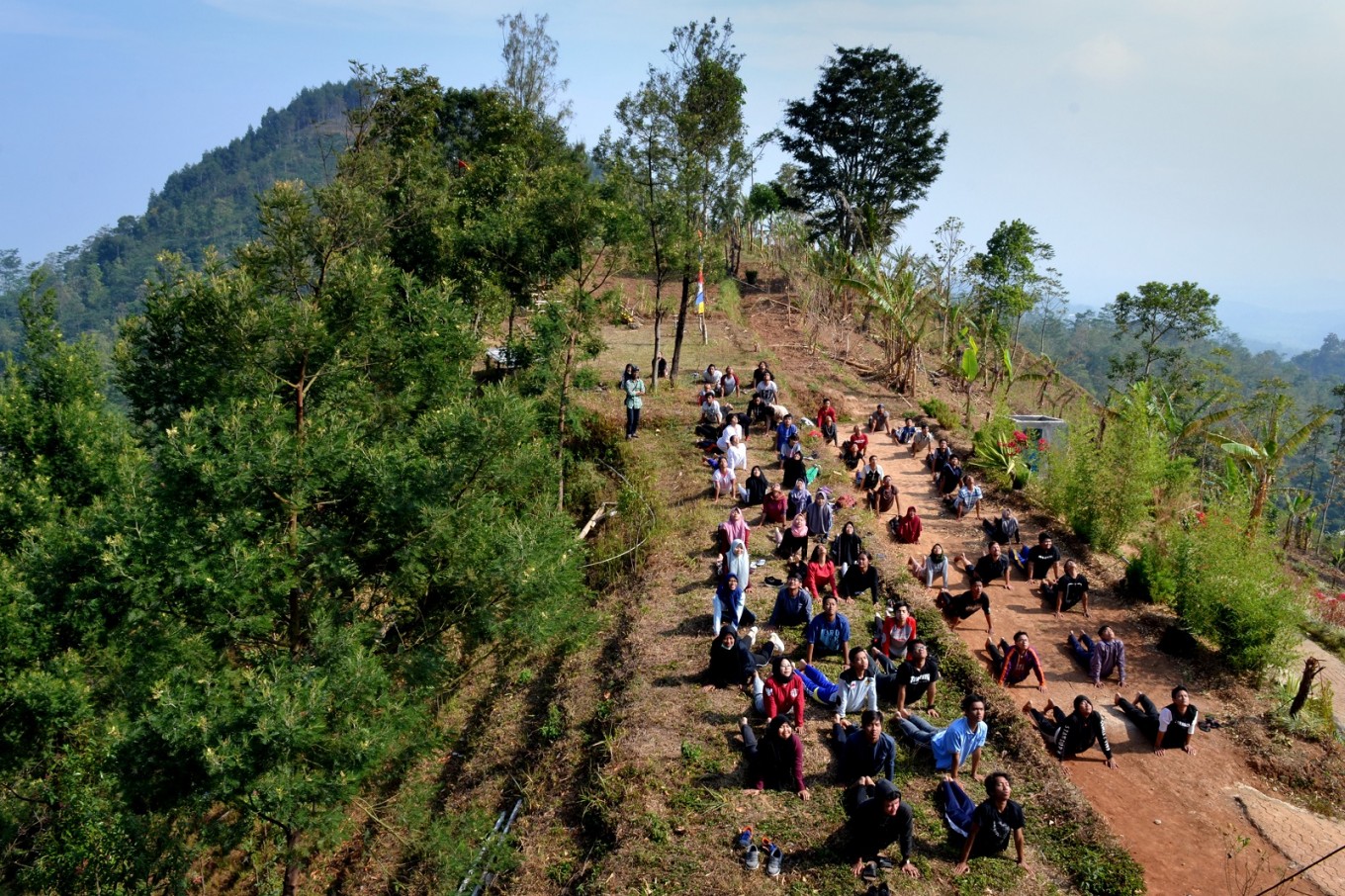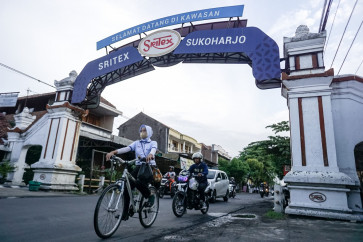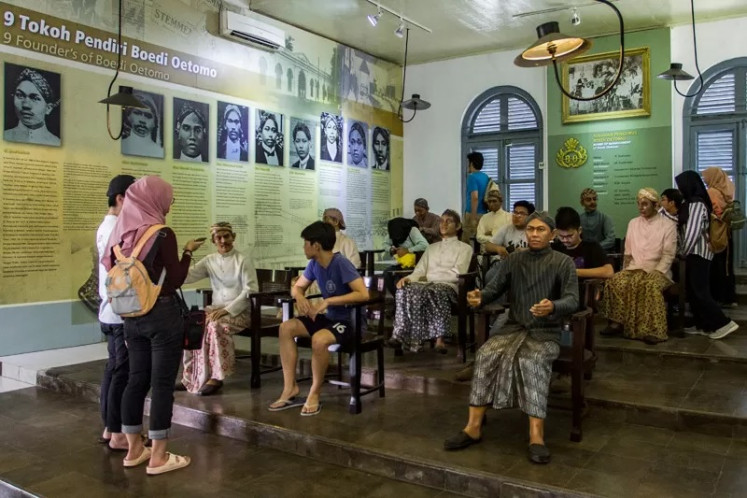ISI Surakarta students immerse in Javanese culture at Mt. Lawu hamlet
Change text size
Gift Premium Articles
to Anyone
 Surakarta Arts Institute {ISI) students practice yoga atop a hill in Dukuh Demping, near Mount Lawu in Karanganyar regency, Central Java, as part of their compulsory Traditional Arts Appreciation field study program. (JP/Stefanus Ajie)
Surakarta Arts Institute {ISI) students practice yoga atop a hill in Dukuh Demping, near Mount Lawu in Karanganyar regency, Central Java, as part of their compulsory Traditional Arts Appreciation field study program. (JP/Stefanus Ajie)
N
inety television and film studies majors from the Surakarta Arts Institute (ISI) have taken part in a field study program at Dukuh Demping, a hamlet in Karanganyar regency, Central Java.
Called ngenger in Javanese, these field study programs require the students to stay and study with the local residents. The television and film students' field study program, held on Sept. 21-22, focused on Javanese culture.
This was the first time that Demping hamlet had hosted Indonesian students on the Javanese culture program, as all previous programs involved foreign students. The latest program was also special, as it coincided with Merti Dusun, the village's thanksgiving celebration, and Festival Kampung Thintir (Thintir Kampong Festival)
The first day of the students' stay was dedicated to cultural dialogue, which delved into the roots of ancient Javanese spiritualism and philosophy. The session was conducted under the guidance of Jero Mangku Djito, a Dukuh Demping community elder.
The ISI Surakarta students were also encouraged to participate in the preparations for the Thintir Kampung Festival, and helped make decorations, cook rice cakes and nasi tumpeng, a celebratory dish of yellow rice shaped into a cone and served with condiments.
Read also: Thintir Market brings cultural heritage to life
The second day started at dawn with a yoga and meditation session as the sun rose above Menara Dewa hill. The session was led by Markus Ananda Oskari, a yogi from Finland who once lived in Dukuh Demping for more than a year to study Javanese culture and spirituality.
The students basked in tranquility to the sounds of a Tibetan singing bowl and flute, and practiced breathing and moving in harmony with the pristine environs of Mount Lawu.
The relaxing morning was followed by a trek over the steep hills surrounding Dukuh Demping to visit sacred sites where the hamlet's residents performed frequent rituals.
The Dukuh Demping field study program is compulsory for ISI Surakarta students to complete their Traditional Arts Appreciation course.
“We bring the students here as part of their learning experience, to hone their aesthetic skills in perceiving and understanding traditional arts in a community,” said Traditional Arts Appreciation professor Ranang
Agung Sugihartono, who chaperoned the students on the two-day program.
Ranang added that the students were expected to develop an outlook on local wisdoms through art and culture to inspire their work in film and television, pointing to award-winning film director Garin Nugroho, who is a regular guest lecturer at ISI Surakarta, as an example.
“Garin’s works are always strongly rooted in traditional culture, but [his] presentations appeal internationally,” said Ranang.
Read also: School of Javanese Culture in Senden opens doors to students across Asia
The students joined the opening parade of the Thintir Kampung Festival in the early evening, which was the main activity of their field study program.
As the skies darkened over the hills of Dukuh Demping, the residents lit lampu thintir (gas lanterns), their main source of light, which bathed the hamlet in a soft glow.
Karanganyar Regent Juliyatmono opened the festival by lighting the first torch. The Demping residents and ISI Surakarta students then paraded through the hamlet, carrying ogoh-ogoh (giant papier-mâché statues) and accompanied by Reog dancers.
After the parade, visitors and residents alike enjoyed traditional dishes such as nasi jagung (corn rice), bothok (steamed coconut and spices in banana leaf) and gethuk (sweetened mashed cassava), along with jamu (herbal beverage), coffee and hot tea.
Everyone in Demping enjoyed the cool night air and the silhouette of Mt. Lawu against the dim glow of the lanterns. They sat on mats in front of the houses, eating and watching traditional performances. (mut)









